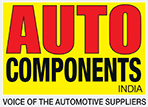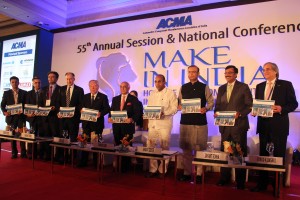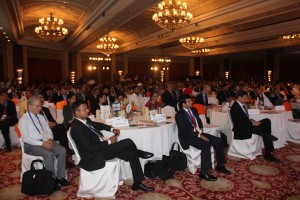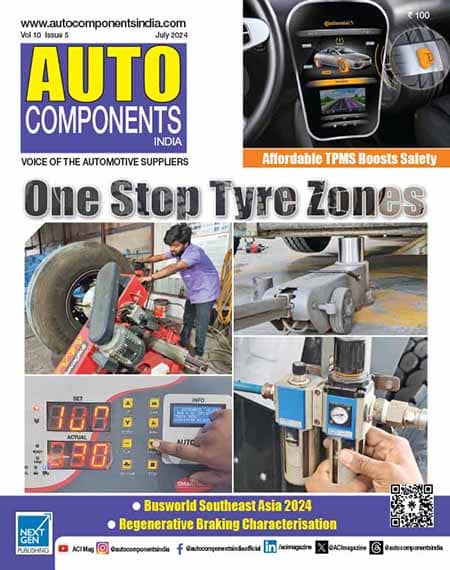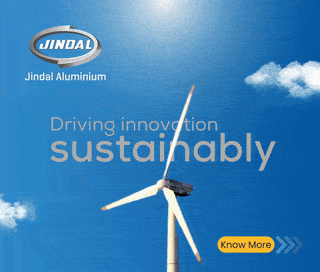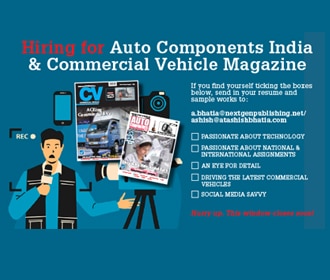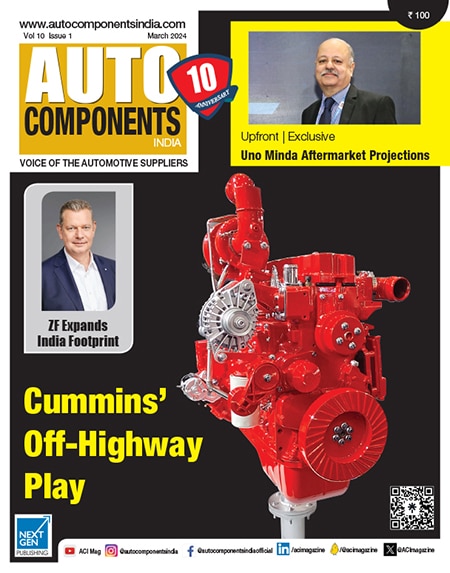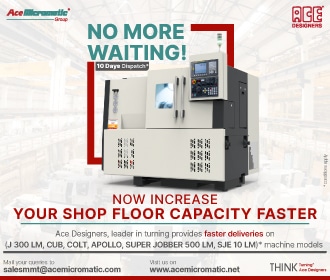Text & Photos: Bhargav TS
‘Quality India’ is the slogan for the growth of the Indian automobile industry, said Osamu Suzuki, Chairman, Suzuki Motor Corporation in his keynote address at the 55th Auto Component Manufacturer Association’s (ACMA) annual convention. Reminding the Indian automotive components industry for the increased number of recalls in recent times Suzuki said, “Quality is imperative. In Make in India slogan, I would like to add quality in India to make in India. In case all suppliers follow stringent quality standards, they can be number one in component market ahead of the US and China. As you know, 1 billion recall news is floating in the global markets, it is important to maintain quality and choose your vendors selectively,” Suzuki added.
Suzuki also asked the component manufacturers to re-invest their profits into their primary business instead of diversifying into other sectors. In the last couple of years, due to drop in vehicle sales and a slowing economy, most of the suppliers have diversified their businesses into sectors such as defence, aerospace and railways. Suzuki commented that “I request you to re-invest your profits into same business and do not invest your profits into making hotels and leisure. That’s going to be the key point in deciding whether you will become number one globally or not. I request you to re-invest in enriching your facilities, build more plants and extend your capacities,” he opined..
As the Indian government is making efforts to develop India as an export hub for small cars, Suzuki commented that, “Small affordable cars with efficient fuel efficiency is accepted in India and demand in the global markets has risen in this segment. India can be established as the hub of small car exports. I am sure that, under the strong leadership of the Indian Prime Minister, Narendra Modi, it can further be accelerated.”
The apex industry body, which recently hosted its 55th Annual Session and National Conference in New Delhi, themed “Make in India: How the Auto Components Industry can Make it Happen” and the same was addressed by key ministers and functionaries from the automotive industry. The dignitaries in the conference included Anant Geete, Union Minister for Heavy Industries & Public Enterprises, Government of India, Jayant Sinha, Minister of State of Finance, Government of India, Osamu Suzuki, Chairman & CEO, Suzuki Motor Corporation, Dr Naushad Forbes, President Designate, CII & Director, Forbes Marshall, Vinod K Dasari, President, SIAM & Managing Director, Ashok Leyland and Ramesh Suri, President, ACMA.
In the last couple of years the auto components industry is facing lot of challenges, though it witnessed 11% growth in overall turnover in last fiscal. In the coming years, the challenge lies for the component sector to start gearing up, in order to handle the situation arising out of these changes. Ramesh Suri, President, ACMA and Chairman, Subros said, “The tough times are yet to come but the industry seems to be promising. The automotive industries accounts for around 40% of overall Indian manufacturing sector. Post the launch of Make in India campaign, the industry witnessed a lot of investments, to expand their operations in the country. As I look back at the performance of Indian auto-component sector, despite the challenges, it has been quite satisfactory. Recent growth in auto component exports by 11.4% is a clear indication of the growing credibility of ‘India made’ components in the global auto supply chain.”
Geete expressed that, “The accusations of being ‘pro-industry’ will not deter the government from supporting the auto components industry as the sector provides employment to lakhs of people in India. The components industry is a labour-oriented industry and therefore growth of this sector is in nation’s interest. We can provide lakhs of jobs through this industry.”
Geete also said that good days are coming for the auto components industry. “I know what challenges automotive sector is facing. The industry is facing difficult time. I want to tell you that whatever cooperation is required from the government we will give it to the industry. In the coming days for entire automotive industry acche din are coming,” said Geete.
However, ACMA’s joint study with McKinsey on ‘Make in India’ – Making it happen’ was released by Anant Geete, suggests that the auto component sector in India can create economic profit, greater returns than the cost of capital through a 9 point agenda that includes, graduating, from ‘make to print’ through frugal innovation, scale-up and professionalise for the next wave of cost excellence, improve quality capability of tier 2 and 3 suppliers, invest to stay on top of evolution of emission and safety standards/adoption, grow plant capacity, people skills and technology to support domestic and global expansion of OEMs, build auto-electronics supply capabilities; leverage large after market and execute big moves, leading in simplified and low cost technology by “Make in India for the World”, build scale and manage cyclicity through M&A ( Mergers and Acquisitions) and diversification and embrace ‘Digital Manufacturing’ to transform productivity and quality.
The study also reveals that there is a requirement of concerted action from automotive components manufacturers, automotive OEMs, automotive value-chain partners and policy makers, in order to establish India as a global manufacturing and export hub and to attract investments in range of USD 80 – 100 billion over the next decade to realise Automotive Mission Plan (AMP) 2016 – 26 aspirations. The study also highlighted that the Indian auto component industry could reach USD 200 billion in revenue, USD 80 billion in exports and contribute 10% of India’s manufacturing GDP by 2026. To realise this goal, the industry needs ensure skill development of the existing talent pool, hand hold the tier 2 & 3 component manufacturers, increase the economic profit and strengthen India’s competitiveness as an investment destination for manufacturing by improving ease of doing business.
Dasari commented that, AMP 2026 expects the component sector to witness a turnover of $223 billion from present $38.5 billion. But, the industry should not try to achieve this target in a better, faster and cheaper manner. More than 75% of cost of auto manufacturers comes from suppliers. The performance of OEMs highly depends on its suppliers. So, auto suppliers should strive to meet its target differently, innovatively and not just imitate its western concepts.
Commenting on the Indian auto components industry, Sinha said, “The auto component industry has and will contribute immensely to the growth of the automotive sector. I am happy to observe that the ACMA-McKinsey report has highlighted the ambitious target of growing the revenues of the auto component industry to 5 folds and make it an important export oriented industry. I am confident that initiatives like these will ensure that the industry overcomes the existing challenges and gets onto a growth trajectory, which will allow it to capture a sizeable market in the global arena.”
Conference also saw speakers from industry and government including Dr Rajan S Katoch, Secretary, Department of Heavy Industry, Ministry of Heavy Industries & Public Enterprises, Government of India, Dr Pawan Goenka, Executive Director & Group President (Automotive & Farm Sector), Mahindra & Mahindra, Anant Talaulicar, Chairman & MD, Cummins India, Ashok Taneja, MD & CEO, Shriram Pistons & Rings, Harish Lakshman, MD, Rane TRW Steering Systems, Claude d’Gama Rose, MD, Continental Automotive Components (India) and Rajat Dhawan, Director and Shivanshu Gupta, Partner, McKinsey & Company India dwelling on the opportunities for the Indian auto component industry to lead the manufacturing sector and significantly increase its contribution to India’s GDP, helping the nation achieve its ‘Make in India’ aspirations.
